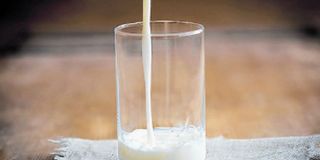The balanced diet in milk

Milk is often called a balanced diet food because it contains several important nutrients.
Nutritional value
Calcium is a major mineral contained in milk according to Amanda Tumwebaze, a freelance nutritionist. The mineral is useful in strengthening bones and teeth, muscle contractions, blood clotting and wound healing.
“Milk contains adequate vitamin D levels which support the production of serotonin, a hormone associated with mood and sleep. Milk provides vitamin D, and it is a good source of calcium. Calcium in milk helps the body absorb vitamin D,” she says. High potassium intake as contained in the milk is associated with a reduced risk of stroke, protection against loss of muscle mass, preservation of bone mineral density and reduction in the formation of kidney stones.
The vitamin-B factor contained in the milk is important in sleep, muscle movement, learning, and memory.
When to limit milk intake
Extremes of people that take a litre of milk every day are likely to suffer complications but taking the milk in moderate quantities (300ml a day) does no harm.
Since milk is considered to be a high calorie food, Lilian Nyanzi, a nutritionist at Neulife Medical Centre, Bweyogerere, recommends that one takes it in the morning when the metabolic rate is high than taking it in the evening before bed.
There are some conditions according to Nyanzi that would limit one from taking milk. People with high blood pressure, diabetes, heart disease and acne should limit their milk intake because it contains a lot of fat. Such people are likely to develop complications as follows.
Poor bone health
Calcium is the main mineral contained in milk but once it is in excess, it brings about an imbalance in the magnesium and potassium minerals that cause bone complications such as bone loss and arthritis.
Hypertension
Full cream milk contains a lot of fat. A daily intake of the milk clogs the blood vessels and when it accumulates, the size of the vessels become narrow, which causes high blood pressure.




